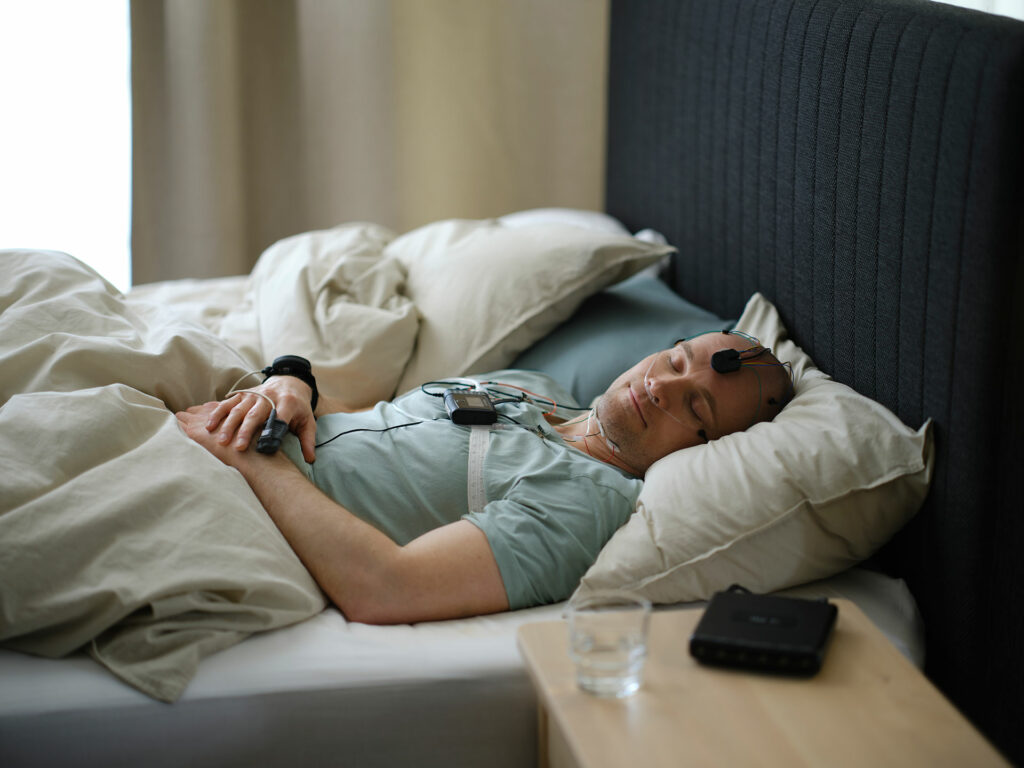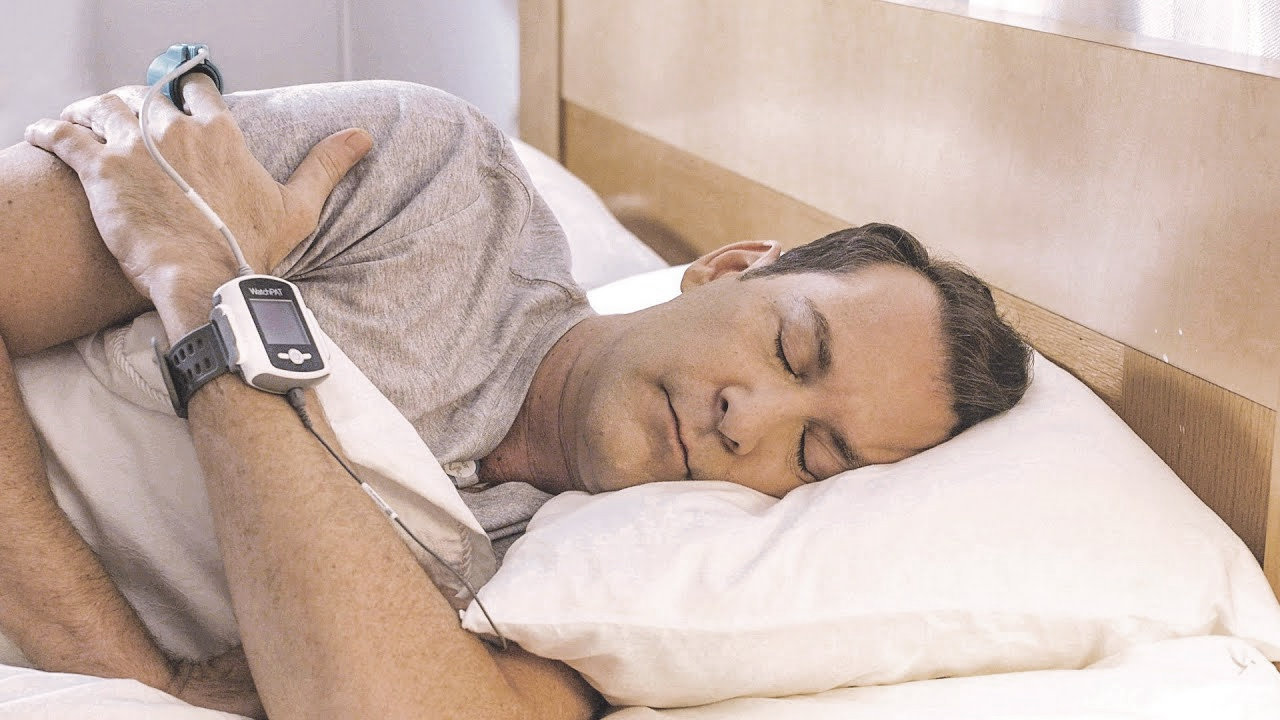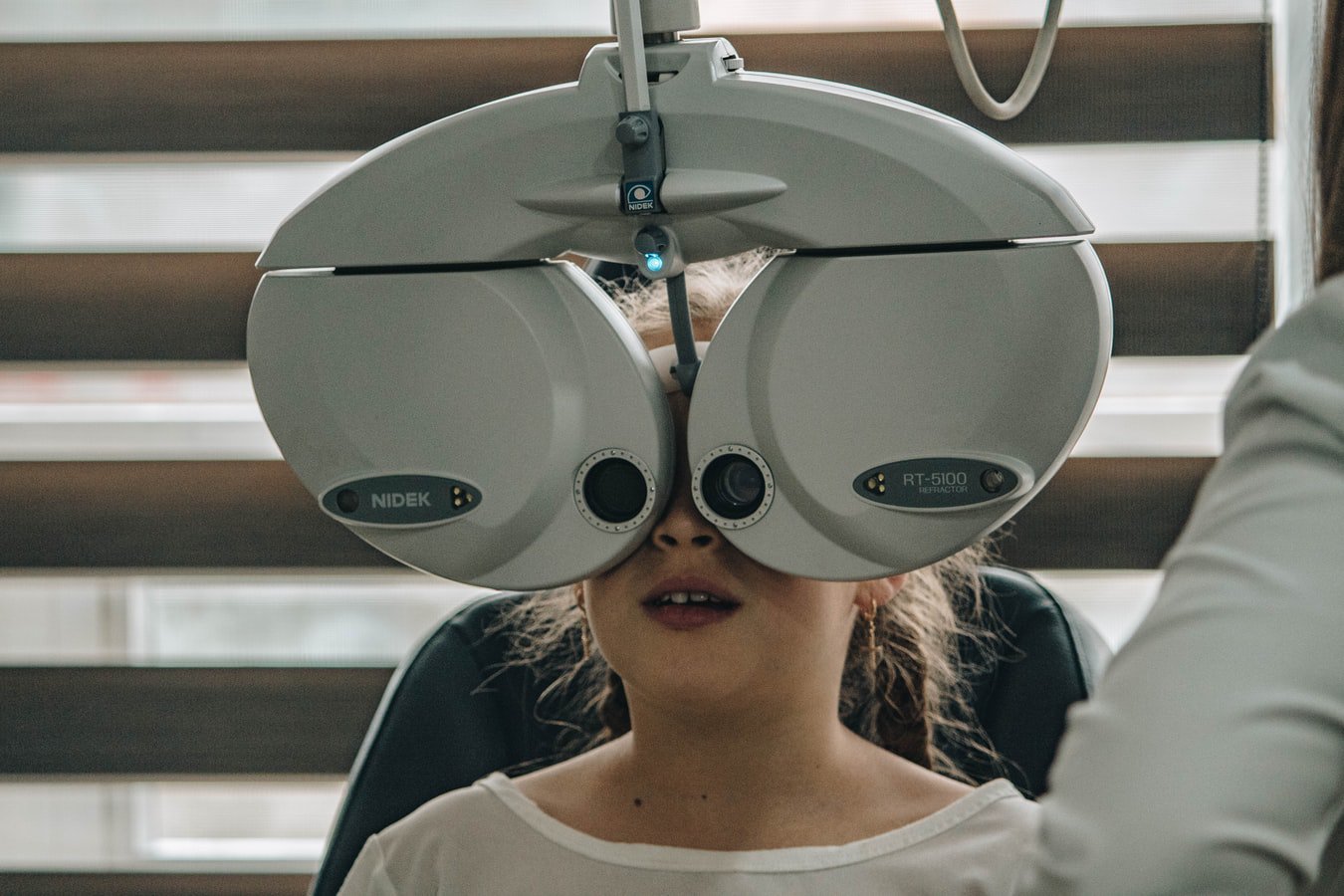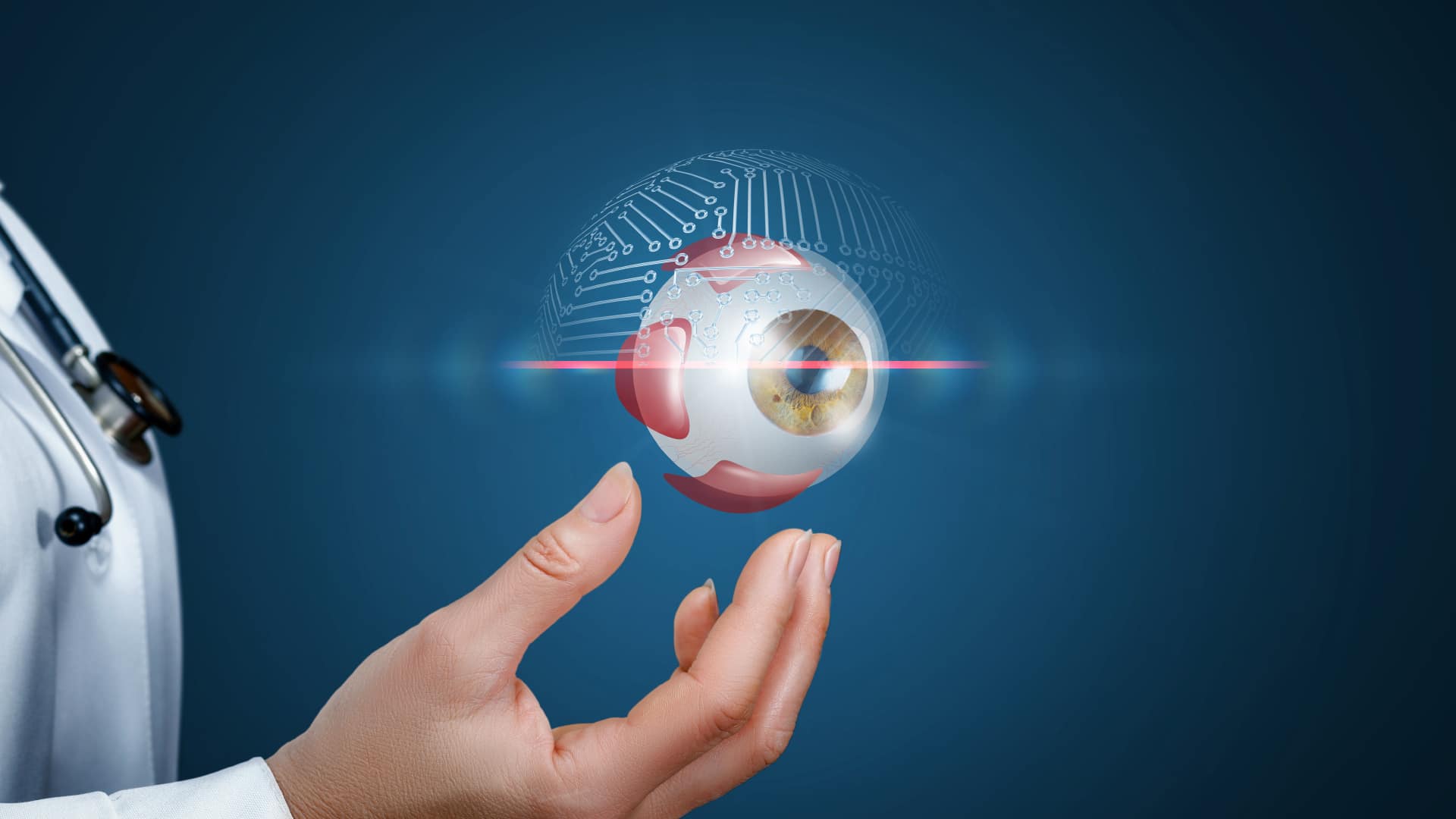Category: Sydney Eye Clinic
Sleep Study Ipswich: Analysing Sleep Patterns in Queensland
Sleep is a fundamental aspect of our daily lives, yet it is often overlooked and undervalued. In recent years, sleep disorders have been on the rise, leading to a growing concern for public health. To shed light on this issue, a comprehensive sleep study was conducted in Ipswich, Queensland. The study aimed to analyze sleep patterns in the region and provide valuable insights into the importance of sleep and its impact on health.
Understanding the Importance of Sleep
Before delving into the details of the sleep study in Ipswich, it is essential to grasp the significance of sleep itself. Sleep is not merely a state of rest; it is a complex physiological process that allows our bodies to rejuvenate and restore. During sleep, our brain consolidates memories, repairs tissues, and regulates essential bodily functions. Without adequate sleep, our cognitive abilities, immune system, and overall well-being are compromised.
With the aim of gathering data on sleep study ipswich in Queensland, the sleep study in Ipswich followed a systematic methodology.
The Science Behind Sleep
Scientists have been intrigued by the science behind sleep for centuries. Through extensive research, they have discovered that sleep is regulated by two main processes: the sleep-wake homeostasis and the circadian rhythm. The sleep-wake homeostasis ensures that we have a sufficient need for sleep based on our awake time, while the circadian rhythm coordinates our sleep-wake cycles with the natural light-dark cycles of the day.
Sleep and Health: A Direct Connection
Studies have consistently shown a direct connection between sleep and overall health. Lack of sleep has been associated with a wide range of health problems, including cardiovascular diseases, obesity, diabetes, and mental health disorders. Furthermore, chronic sleep deprivation can impair cognitive function, decrease productivity, and increase the risk of accidents. Understanding this connection is crucial for developing effective strategies to improve sleep health.
One fascinating aspect of sleep is the role it plays in memory consolidation. During sleep, the brain processes and stores information gathered throughout the day, strengthening neural connections and enhancing our ability to recall and retain information. This process, known as memory consolidation, is vital for learning and academic performance. It is no wonder that students who prioritize sleep often perform better in exams and have improved cognitive abilities. Learn more about cognitive abilities visit at https://www.brookings.edu/wp-content/uploads/2016/06/05education_dickens.pdf.
Additionally, sleep is closely linked to our emotional well-being. A good night’s sleep can help regulate our emotions and improve our mood, while sleep deprivation can lead to irritability, mood swings, and even depression. This connection between sleep and emotions highlights the importance of prioritizing quality sleep to maintain optimal mental health.

The Methodology of Sleep Study Ipswich
The research team employed various techniques to collect accurate and reliable information on sleep habits, sleep quality, and potential sleep disorders prevalent in the region.
The Role of Sleep Studies in Health Research
Sleep studies play a vital role in health research, as they allow researchers to examine sleep patterns objectively. Through polysomnography, a diagnostic test used in sleep studies, researchers can monitor brain waves, breathing patterns, heart rate, and other physiological parameters during sleep. This data enables a comprehensive analysis of sleep patterns and helps identify any abnormalities or disorders that may exist. Learn more about heart rate, click here.
How Sleep Studies are Conducted
In the sleep study in Ipswich, participants were required to spend a night in a specially equipped sleep laboratory. During their stay, their sleep was monitored using advanced polysomnography equipment. Additionally, participants were required to provide detailed information about their sleep routines, lifestyle habits, and any sleep-related symptoms they may have experienced. This multi-faceted approach ensured that the sleep study captured a comprehensive picture of sleep patterns in the Ipswich region.
The sleep laboratory in Ipswich was designed to create a comfortable and relaxing environment for participants. The rooms were soundproofed to minimize external disturbances, and the bedding was carefully selected to provide optimal comfort. Soft lighting and soothing decor were used to promote a sense of tranquility, facilitating a more natural sleep experience for the participants. Learn more about Sleep Study Referral: Understanding the Process and Requirements visit at https://mhsblogs.com/sleep-study-referral-understanding-the-process-and-requirements/.
Furthermore, the research team in Ipswich included experienced sleep specialists who oversaw the entire study process. These experts were trained to analyze the data collected during the sleep study accurately. Their expertise allowed for the identification of subtle patterns in sleep behavior and the interpretation of complex sleep data, ensuring that the results of the study were thorough and insightful.
Analysing Sleep Patterns in Queensland
The analysis of sleep patterns in Queensland revealed several interesting findings. These findings not only provide valuable insights into the sleep habits of the region but also shed light on the prevalence of sleep disorders and the impact of lifestyle choices on sleep quality.
Understanding the nuances of sleep patterns is crucial for maintaining overall health and well-being. By delving into the sleep habits of Queensland residents, researchers were able to uncover valuable information that can help individuals make informed decisions about their sleep hygiene and seek appropriate interventions when needed.
Common Sleep Disorders in Queensland
One of the key findings from the sleep study in Ipswich was the high prevalence of sleep disorders in Queensland. Sleep apnea, insomnia, and restless leg syndrome were identified as the most common sleep disorders in the region. These disorders can significantly disrupt sleep continuity and quality, leading to daytime sleepiness and impaired daytime functioning.
It is essential for healthcare providers to be aware of the prevalence of these sleep disorders in Queensland to ensure timely diagnosis and management. By addressing these issues effectively, individuals can improve their overall quality of life and reduce the risk of associated health complications.
Impact of Lifestyle on Sleep Patterns
Another fascinating finding from the sleep study highlighted the impact of lifestyle on sleep patterns. It was observed that individuals who engaged in regular physical activity, maintained a healthy diet, and practiced effective stress management techniques experienced better sleep quality. On the other hand, those with sedentary lifestyles, poor dietary habits, and high stress levels had a higher prevalence of sleep disturbances.
These findings underscore the importance of adopting a healthy lifestyle to promote restful sleep. By incorporating physical activity, nutritious eating habits, and stress-reducing activities into daily routines, individuals can optimize their sleep patterns and enhance their overall well-being. Making conscious choices to prioritize sleep can have a profound impact on both physical and mental health, ultimately leading to a more fulfilling and energized life.

Findings from Sleep Study Ipswich
The findings from the sleep study in Ipswich provided invaluable insights into various aspects of sleep patterns, which have important implications for public health and well-being.
Understanding the nuances of sleep patterns is crucial for identifying potential areas of improvement in sleep hygiene and overall health. The study delved deep into the sleep habits of individuals in Ipswich, shedding light on both quantitative and qualitative aspects of their rest. By examining factors such as bedtime routines, sleep environment, and sleep disturbances, researchers were able to paint a comprehensive picture of the sleep landscape in the region.
Key Insights into Sleep Patterns
One significant insight gained from the study was the average sleep duration of individuals in the Ipswich region. It was found that the majority of participants were not meeting the recommended sleep duration, which contributes to the overall sleep debt in the population. Additionally, the study revealed that the sleep efficiency, a measure of the time spent asleep while in bed, was significantly lower than expected, indicating possible disturbances in sleep quality.
Furthermore, the study also explored the impact of lifestyle factors such as screen time before bed, caffeine consumption, and stress levels on sleep patterns. These additional layers of analysis provided a more holistic view of the factors influencing sleep quality and duration among Ipswich residents, offering valuable insights for future interventions and support programs.
Implications of the Study for Public Health
The implications of the sleep study in Ipswich for public health are far-reaching. The findings highlight the urgent need for sleep health education and awareness campaigns in Queensland. By promoting the importance of a good night’s sleep and providing evidence-based strategies to improve sleep habits, public health initiatives can positively influence the overall well-being and productivity of individuals in the region.
Moreover, the data from the study can serve as a foundation for policy development aimed at creating sleep-friendly environments in workplaces, schools, and communities. By prioritizing sleep as a fundamental pillar of health, policymakers can work towards implementing systemic changes that support healthy sleep habits and address the root causes of inadequate rest. Collaborative efforts between health authorities, educational institutions, and local businesses can help create a culture that values and prioritizes sleep, ultimately leading to a healthier and more vibrant population in Ipswich and beyond.
Improving Sleep Health in Queensland
Based on the findings from the sleep study, it is evident that efforts need to be made to improve sleep health in Queensland. Implementing …
Read MoreSleep Study Referral: Understanding the Process and Requirements
In today’s fast-paced world, getting a good night’s sleep has become increasingly difficult for many individuals. From hectic work schedules to the constant distractions of technology, it’s no wonder that sleep disorders are on the rise. If you’re experiencing persistent sleep issues, your healthcare provider may recommend a sleep study to further investigate the cause of your sleep problems. Understanding the process and requirements of a sleep study can help you prepare and ensure a smooth experience.
Understanding Sleep Studies
What is a Sleep Study?
A sleep study, also known as polysomnography, is a non-invasive test that monitors and evaluates various aspects of your sleep. It involves spending a night at a sleep center, where trained healthcare professionals observe and record your sleep patterns, breathing, heart rate, brain activity, and other physiological parameters. The data collected during a sleep study provide valuable insights into the quality and quantity of your sleep, as well as any potential sleep disorders you may have.
Importance of Sleep Studies
Sleep studies play a crucial role in diagnosing and managing sleep disorders such as insomnia, sleep apnea, narcolepsy, and restless leg syndrome. By identifying the root cause of your sleep disturbances, healthcare professionals can develop personalized treatment plans to improve your sleep quality and overall well-being. Moreover, untreated sleep disorders can lead to serious health concerns, including cardiovascular issues, cognitive impairment, and decreased immune function. Therefore, undergoing a sleep study referral can be a pivotal step towards better health.
Types of Sleep Studies
There are different types of sleep studies that can be conducted based on the specific sleep disorder suspected. For example, a split-night sleep study involves diagnostic testing for sleep apnea during the first half of the night, followed by continuous positive airway pressure (CPAP) therapy during the second half to determine the optimal treatment. Multiple sleep latency tests (MSLT) are used to diagnose narcolepsy by measuring how quickly you fall asleep during the day. Additionally, maintenance of wakefulness tests (MWT) assess your ability to stay awake during the day, which is crucial for professions that require high levels of alertness. Learn more about Sleep Study Ipswich: Analysing Sleep Patterns in Queensland visit at https://mhsblogs.com/sleep-study-ipswich-analysing-sleep-patterns-in-queensland/
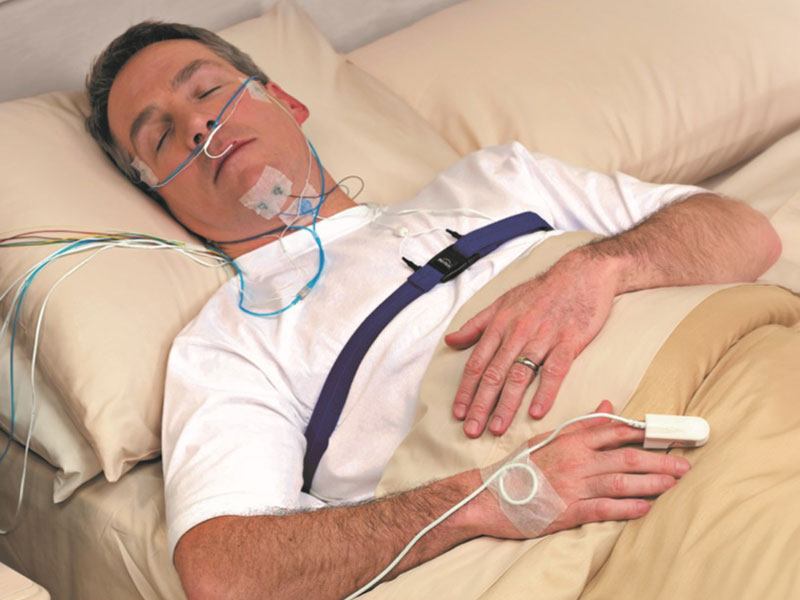
Preparing for a Sleep Study
Prior to a sleep study, it is important to follow certain guidelines to ensure accurate results. This may include avoiding caffeine and alcohol consumption, as well as certain medications that could interfere with the monitoring equipment. It is also recommended to bring comfortable sleepwear and any items that help you relax before bedtime, such as a favorite book or pillow. Creating a sleep-conducive environment at the sleep center can help you feel more at ease and mimic your typical bedtime routine for a more accurate assessment of your sleep patterns.
The Referral Process for Sleep Studies
When it comes to the referral process for sleep studies, understanding who can refer you is crucial. Sleep studies are typically recommended by a variety of healthcare professionals, including primary care physicians, pulmonologists, neurologists, or sleep medicine specialists. These specialists are trained to identify and diagnose sleep disorders, making them well-equipped to determine if a sleep study is necessary for your specific situation. Learn more about pulmonologists click here.
Who Can Refer You for a Sleep Study?
Sleep studies are typically recommended by primary care physicians, pulmonologists, neurologists, or sleep medicine specialists. If you’re experiencing persistent sleep problems, it’s important to discuss your symptoms and concerns with your healthcare provider. Based on your medical history, symptoms, and initial evaluations, they will determine whether a sleep study is necessary.
Primary care physicians are often the first point of contact for individuals experiencing sleep issues. They can conduct initial assessments, provide basic treatments, and refer you to specialists if needed. Pulmonologists specialize in respiratory conditions and can identify sleep-related breathing disorders like sleep apnea. Neurologists focus on disorders of the nervous system, including conditions that affect sleep patterns. Sleep medicine specialists have specific training in sleep disorders and can offer comprehensive evaluations and treatments.
Steps in the Referral Process
The referral process may vary depending on your healthcare provider and local practices. Generally, it involves an initial consultation where you discuss your sleep concerns, followed by a physical examination and a review of your medical history. Your healthcare provider will then assess whether you meet the criteria for a sleep study referral. If a referral is deemed appropriate, they will provide further instructions on how to proceed.
During the initial consultation, it’s important to provide detailed information about your sleep habits, symptoms, and any factors that may be affecting your sleep quality. This will help your healthcare provider make an informed decision about whether a sleep study is necessary. Additionally, be prepared to discuss any underlying medical conditions, medications you’re taking, and lifestyle factors that could impact your sleep.
Requirements for a Sleep Study Referral
Are you struggling with persistent fatigue, loud snoring, or frequent awakenings during the night? These symptoms could be indicative of an underlying sleep disorder that warrants a thorough evaluation through a sleep study. While each case is unique, there are several medical conditions and symptoms that may prompt a healthcare provider to recommend a sleep study referral.
In addition to the common symptoms like excessive daytime sleepiness and morning headaches, individuals with underlying medical conditions such as obesity, heart disease, and diabetes are at a higher risk of developing sleep disorders. The presence of conditions like sleep apnea, restless legs syndrome, or insomnia can significantly impact your overall health and quality of life. Therefore, a comprehensive sleep study evaluation is crucial in identifying and addressing these issues effectively. Learn more about common symptoms visit at https://uhs.princeton.edu/health-resources/common-illnesses.
Medical Conditions that Warrant a Sleep Study
While each case is unique, there are several medical conditions and symptoms that may warrant a sleep study referral. These include excessive daytime sleepiness, loud snoring, frequent awakenings during the night, morning headaches, gasping or choking during sleep, and witnessed pauses in breathing. Additionally, individuals with underlying medical conditions such as obesity, heart disease, and diabetes are at an increased risk of developing sleep disorders and may require a sleep study evaluation.
It’s essential to recognize the potential impact of untreated sleep disorders on your overall health and well-being. By addressing these issues proactively, you can improve your sleep quality, enhance your daytime functioning, and reduce the risk of associated health complications.
Necessary Documentation for a Referral
When seeking a sleep study referral, it’s important to provide your healthcare provider with accurate and detailed information. This may include a comprehensive list of your symptoms, information about your sleep habits and patterns, any previous sleep study results, and a list of current medications. By sharing this information, you can assist your healthcare provider in making an informed decision regarding your sleep study referral.
Remember, a sleep study is a valuable tool in diagnosing and managing various sleep disorders. By collaborating with your healthcare team and actively participating in the evaluation process, you can take proactive steps towards improving your sleep quality and overall health.
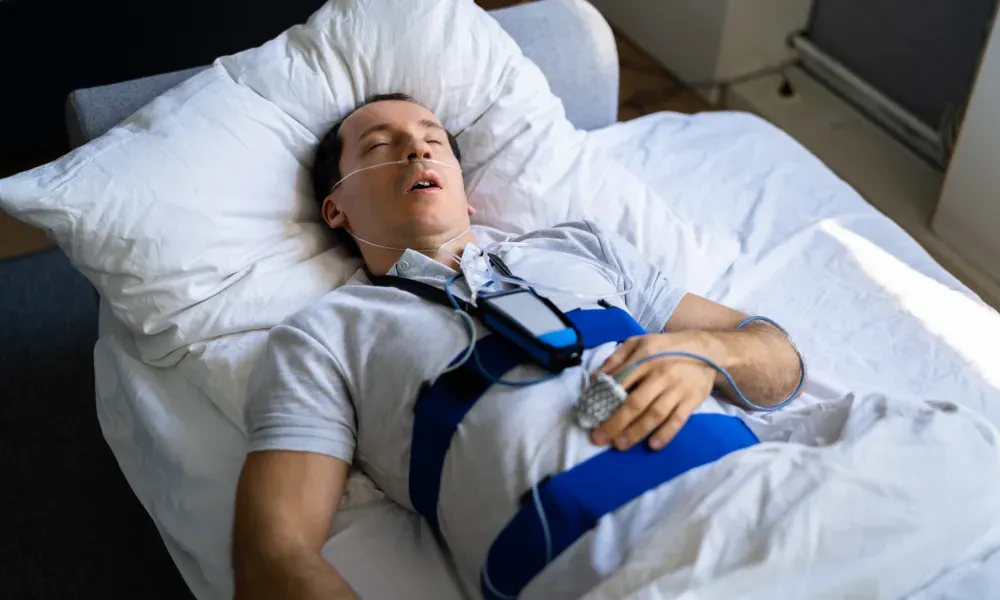
Preparing for Your Sleep Study
Embarking on a sleep study can be a new and somewhat daunting experience for many individuals. However, understanding what lies ahead can help ease any apprehensions you may have. Upon your arrival at the sleep center, you will be ushered into a cozy room meticulously designed for sleep studies. The array of monitoring equipment, though extensive, is completely painless and non-intrusive. Tiny sensors will be affixed to different parts of your body to monitor a range of vital signs including brain waves, eye movements, breathing patterns, heart rate, and muscle activity. Despite the initial strangeness of being hooked up to these devices, sleep centers take great care to cultivate a serene and homelike ambiance to ensure you have a restful and comfortable sleep environment.
What to Expect During the Study
Throughout the night, trained professionals will discreetly monitor your sleep patterns and vital signs from a separate control room. They will observe your responses to various sleep stages and disturbances, all while ensuring your safety and well-being. The data collected during the study will provide valuable insights into your sleep quality and any underlying sleep disorders that may be affecting your rest. By participating in a sleep study, you are taking a proactive step towards understanding and improving your sleep health.
Tips for the Night Before Your Study
To ensure the accuracy and effectiveness of your sleep study, it is crucial to adhere to the specific guidelines outlined by the sleep center. These guidelines typically include refraining from the consumption of caffeine or alcohol a few hours before the study, avoiding excessive daytime napping, and sticking to your usual bedtime routine. Additionally, consider bringing along your favorite sleepwear, personal toiletries, and any items that contribute to your sleep comfort, such as a beloved pillow or soothing sleep mask. By following these recommendations, you can optimize the conditions for a successful and informative sleep study experience.
Interpreting Sleep Study Results
Understanding
… Read MoreHow often should you visit a Sydney eye clinic
Your age, as well as your eyes, family, and other factors, have a role.
Your doctor could advise regular Sydney eye clinic exams every two years if you’re under 40 and don’t have any eye issues. Or they could inform you that no tests are necessary. Find out their recommendations for you.
Every 1-2 years, everyone 40 years of age or older should get their eyes examined.
You should visit Sydney eye clinic annually if you’ve ever had eye problems or if you’re at risk of doing so (for example, if someone in your family has).
Why? You should get your eyesight checked to discover whether you have any major, often “silent” issues like glaucoma, age-related macular degeneration, cataracts, or diabetic retinopathy.
When your kid is a newborn and again at each routine medical checkup, if they don’t have any risk factors for eye issues, their eyesight should be assessed. It will be simpler for the doctor to evaluate their eyes when kids are 3 years old. Every one to two years after the first grade, kids should get their eyes checked.

Are My Eyes in Danger?
You may need more regular tests if you have a health issue like high blood pressure, perform a profession that demands a lot of eye contact, or use medications that might impair vision.
Get your eyes tested if you have type 1 diabetes within five years of your diagnosis and then annually after that.
If you’re told you have type 2 diabetes, you should be checked out right away. After that, get your eyes tested annually.
How to Get Ready
Mention any visual issues you may have when you call to schedule your test.
Make a note of any questions you have for the doctor before you visit. Be prepared to give them an update on any medications you use as well as your (and your family’s) history of eye health.
Bring the prescription, your glasses, and your contact lenses. Bring sunglasses as well for the return journey. To dilate your pupils, the doctor could use eye drops. It is known as dilation. After that, light sensitivity will affect your eyes.
When You Get a Sydney Eye Clinic Exam
The eye doctor or a member of the office staff will first inquire about your past medical and visual history.
Depending on the technology utilized, the test might run anywhere from 30 minutes to several hours. It will cover your eye health and eyesight.
The majority of the following Sydney eye clinic exams, as well as maybe a few more, will likely be performed on you:
Test of eye muscle movement: This determines the alignment of your eyes. The physician will observe how your eyes move while you track a moving object (such as a finger tip or their pen) as it changes direction.
The cover test reveals how effectively your eyes cooperate. You’ll fix your gaze on a little object in the distance. To measure how much your eyes move, the doctor will cover and uncover each eye. Additionally, your doctor will be looking for an eye that shifts away from the intended target. Strabismus is the medical term for this issue. You are welcome to retake the Sydney eye clinic exam with a nearby target.

External examination and student responses
The doctor will observe how your pupils respond to light and nearby objects. Your eyelids’ posture and the whites of your eyes will also be examined at the same time.
You’ll sit in front of an eye chart with progressively smaller letters as you read down each line to undergo a visual acuity test. You’ll cover each eye in turn and read aloud while moving down the chart while using the other eye until you can no longer make out the letters.
Refraction testing: The doctor might use a computerized refractor to determine your precise lens prescription. By switching the phoropter back and forth between lenses and asking you which is better, your doctor will adjust the prescription. You won’t need this Sydney eye clinic exam if you don’t need corrective glasses.
The slit lamp (biomicroscope) enlarges and illuminates the front of your eye. In order to search for indications of certain eye disorders, the doctor utilizes it to examine your cornea, iris, lens, and back of your eye.
The retina, retinal blood vessels, fluid in your eyes (which your doctor may refer to as vitreous fluid), and the head of your optic nerve may all be seen during a retinal examination (also known as an ophthalmoscopy).
Tests for glaucoma determine if the fluid pressure within your eyes is within a normal range. It is quick, painless, and there are a few methods to accomplish it:
The most precise device is the tonometer. You’ll be given eye drops to numb them. To measure the pressure, the doctor will instruct you to look straight ahead as he or she lightly touches the front surface of each eye using an instrument known as an applanation tonometer or Tonopen.

Noncontact tonometer or puff of air: As you look at a target, a machine will blow a little puff of air into each of your eyes. Your eye’s resistance to the puff reveals how much pressure is there there.
Pachymetry: In this Sydney eye clinic examination, the thickness of your cornea is measured using ultrasound. False low-pressure readings may be the result of thin corneas. False high-pressure readings may result from thick corneas. One test may be administered to you in order to establish a baseline for comparison with subsequent results. People who need corneal surgery may utilize it.
Pupil enlargement: The doctor will use instruments and lighting to examine the inside of your eyes after thoroughly enlarging your pupils. It takes the eye drops for this portion of the test 20 to 30 minutes to start working. They obstruct your eyesight and increase your eyes’ sensitivity to light. These effects might linger for many hours or more. You may need those sunglasses on the way home because of this. Modern devices can see the very back of your retina without dilation of your pupils.
Perimetry of the visual field: Your visual field is the region in front of you that you can see clearly without shifting your eyes. Your Sydney eye clinic doctor will map what you see at the edges (periphery) of your visual field using one of three tests and utilize this map to identify any eye issues.
4 ways to find a Sydney eye clinic
1. Request referrals from relatives or friends.
2. Seek advice from your primary care physician.
3. Contact a neighboring hospital’s ophthalmology or optometry department and inquire about the physicians that work there.
4. Speak with local and state organizations, associations, and academies of ophthalmologists and optometrists to see if they can assist you.
… Read MoreHandy question tips that help during Sydney eye clinic appointments
What questions are you asking your Sydney eye clinic patients? By spending four minutes asking these eight questions, you can significantly increase both your capture rate and your second pair sales.
Who knows, you may even uncover additional medical conditions as well!
- Please describe what you currently wear?
This simple question helps determine what the patient is wearing, and just as important, what they are not wearing. It is a good ice breaker question. It also gives the Sydney eye clinic direction about other visual options that the patient needs such as sun wear, occupational wear or contact lenses. - Describe what you dislike about your current visual solution?
This question is built to determine where to focus, and which areas you need to fix or alter. For example, a patient may report glare at night, giving you a great reason to prescribe new visual solutions. - Do you have any special vision needs for your hobbies or occupation? Please describe. This opens the door for a conversation about second or third pairs of eyewear.
- Do you suffer from any of the following? Eyestrain, dry or irritated eyes, itchy eyes, fluctuating vision, headache, or red eyes.
This question is to pull out visual issues that many people do not associate with allergies, dry eyes, accommodative issues, or convergence issues. - How many hours a day/night do you use a computer?
The goal of this question is to determine the patient’s near point needs and the potential need for occupational eyewear. - Do you have trouble focusing in the distance after reading or using the computer for more than 10 minutes?
This helps identify accommodative or early presbyopia problems. - Do you have trouble reading street signs or with seeing glare from oncoming headlights at night?
We are looking for glare issues and the ability to sell anti-glare solutions. - Will you be purchasing eye wear, sun wear or contact lenses today?
Use this as your final question. If the answer is “yes,” it will be an easy sale. If the patient says, “maybe,” you need to look for prescription changes.

Preparing ahead of time can help you best manage your vision health. Here are some questions you can take along when you visit a Sydney eye clinic.
- What tests will we be doing today, and do they include a dilated Sydney eye clinic exam to check for diseases such as glaucoma and macular degeneration?
- Is there anything about my medical or family history that puts me at higher risk for eye disease?
- Are there symptoms to watch for and ways to monitor my eye health?
- How often do you recommend I return for a comprehensive Sydney eye clinic exam?
- Are there lifestyle changes that might lower my risk?
Things to bring to your appointment:
- Your health insurance information and a photo ID
- Eyeglasses or contact lenses you currently wear
- Information on any history of eye disease in your family
- A list of your medications, allergies, and other conditions
- A notepad and pen, or digital device, to take notes
- A friend or relative to accompany you if possible
If You are Diagnosed with an Eye Disease
Take an active role in the understanding and treatment of your condition. Here are some questions to ask your Sydney eye clinic when you discuss your diagnosis.
- Am I likely to need medications or surgery, now or in the future?
- Do these medications have any side effects?
- Will insurance cover these treatments, or is financial assistance available?
- What symptoms should I watch for, and do I need to contact you about any right away?
- Should I be concerned about driving?
- How often will you check my eyes to make sure they are not getting worse?
- Could I benefit from low vision services–such as occupational therapy or technological aids–to help me use my remaining vision?
- Do you have any materials or other suggestions on how I can learn more about this disease?

Additional questions to ask
1. Which Tests Will Be Performed?
Knowing what your eye doctor will do will put your mind at ease if you have any anxiety before your next Sydney eye clinic exam. You’ll also feel more comfortable.
Find out any instruments they will use to perform tests. You should also find out why specific tests are being conducted.
Do not hesitate to ask about the potential health risks and side effects of the tests. For instance, by knowing that a particular test will interfere with your vision, you can arrange for someone to drive you home after your appointment.
It never hurts to be well-informed and prepared, especially when it comes to your vision!
2. What Do My Results Mean?
The ophthalmologist will pick tests to give insights into your vision based on your eye issues or symptoms. Once the results are out, find out from your eye doctor what the results mean.
When you have your results, you can discuss any next steps that you may need to take. If anything is not clear, do not hesitate to ask your ophthalmologist to give you any further clarification.
3. Are Follow-Up Visits Necessary?
Many people don’t bother scheduling follow-up visits with their eye doctor frequently if they don’t have an eye condition or problems with their vision. You only have one set of precious eyes and taking good care of them should be a top priority.
The only way to do that is by visiting your eye doctor regularly. Even if you believe your eye health is excellent, preventative care can catch any issues before they escalate.
That’s why it’s so important to talk to your ophthalmologist about how often you should schedule your Sydney eye clinic examinations. The number of Sydney eye clinic exams you need will likely change depending on age.
As you get older, you’ll need more frequent Sydney eye clinic exams.
4. Should I Make Any Lifestyle Changes to Prevent Eye Diseases and Disorders?
To avoid common eye disorders and diseases, the doctors at Takle Eye Group recommend asking whether it’s necessary to make any lifestyle changes. Your ophthalmologist will educate you on the steps to take to keep your eyes safe and as healthy as possible.
For instance, you may discover that certain foods can protect your eye health and reducing screen time will prevent dry eyes. Armed with this information, you can start treating your eyes with more respect and know that your vision will last you many more years!
Related: How often should you visit a Sydney eye clinic
… Read MoreRecent Posts
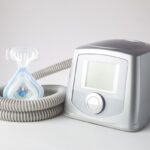 Ultimate Guide to Choosing an Oxygen Concentrator in Australia (2026)ntroduction to Modern Oxygen Therapy For many Australians living with chronic respiratory conditions, maintaining an active lifestyle in cities like Sydney requires more than just medical advice—it requires the right technology. An oxygen concentrator is […]
Ultimate Guide to Choosing an Oxygen Concentrator in Australia (2026)ntroduction to Modern Oxygen Therapy For many Australians living with chronic respiratory conditions, maintaining an active lifestyle in cities like Sydney requires more than just medical advice—it requires the right technology. An oxygen concentrator is […]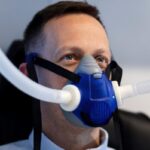 The Best CPAP Mask Options for New Users and What Makes Them ComfortableSleep apnea disrupts breathing during sleep, causing repeated pauses that prevent restful sleep and strain the cardiovascular system. CPAP therapy delivers continuous pressurized air through a mask, keeping airways open throughout the night and enabling […]
The Best CPAP Mask Options for New Users and What Makes Them ComfortableSleep apnea disrupts breathing during sleep, causing repeated pauses that prevent restful sleep and strain the cardiovascular system. CPAP therapy delivers continuous pressurized air through a mask, keeping airways open throughout the night and enabling […] Oxygen Machine for Home Use: A Complete Guide for First-Time BuyersWhat Is an Oxygen Machine and How Does It Work? An oxygen machine for home use, commonly known as an oxygen concentrator, is a medical device that delivers concentrated oxygen to individuals with respiratory conditions. These respiratory therapy devices […]
Oxygen Machine for Home Use: A Complete Guide for First-Time BuyersWhat Is an Oxygen Machine and How Does It Work? An oxygen machine for home use, commonly known as an oxygen concentrator, is a medical device that delivers concentrated oxygen to individuals with respiratory conditions. These respiratory therapy devices […]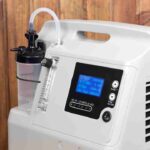 Medical Oxygen at Home: Essential Information on Oxygen Tanks, Machines, and TherapiesIntroduction For individuals with chronic respiratory conditions, such as COPD, asthma, or emphysema, medical oxygen therapy at home is often a critical part of maintaining health and improving quality of life. Whether you need an oxygen machine for […]
Medical Oxygen at Home: Essential Information on Oxygen Tanks, Machines, and TherapiesIntroduction For individuals with chronic respiratory conditions, such as COPD, asthma, or emphysema, medical oxygen therapy at home is often a critical part of maintaining health and improving quality of life. Whether you need an oxygen machine for […]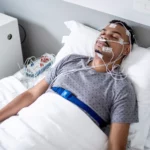 Understanding Sleep Apnea: Causes, Symptoms, and Effective TreatmentsSleep is one of the most vital pillars of good health, but for millions of people, restful sleep is harder to achieve than it should be. One of the most common reasons for poor sleep quality is sleep apnea, a potentially serious sleep disorder that often […]
Understanding Sleep Apnea: Causes, Symptoms, and Effective TreatmentsSleep is one of the most vital pillars of good health, but for millions of people, restful sleep is harder to achieve than it should be. One of the most common reasons for poor sleep quality is sleep apnea, a potentially serious sleep disorder that often […]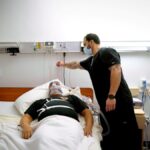 Bulk-Bill Sleep Study Brisbane: Affordable Options for LocalsWhat Are Bulk-Bill Sleep Studies and How Do They Work in Brisbane? Bulk-bill sleep study Brisbane services provide you with direct billing to Medicare, eliminating upfront costs for diagnostic testing. When you receive a bulk-bill sleep study, the […]
Bulk-Bill Sleep Study Brisbane: Affordable Options for LocalsWhat Are Bulk-Bill Sleep Studies and How Do They Work in Brisbane? Bulk-bill sleep study Brisbane services provide you with direct billing to Medicare, eliminating upfront costs for diagnostic testing. When you receive a bulk-bill sleep study, the […]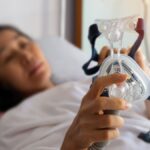 Sleep Apnea Test Adelaide: Early Diagnosis for Better HealthWhat Is Sleep Apnea and Why Is Early Diagnosis Important? Sleep apnea is a serious sleep disorder where your breathing repeatedly stops and starts during sleep. This condition affects millions of people worldwide, yet many remain undiagnosed, missing […]
Sleep Apnea Test Adelaide: Early Diagnosis for Better HealthWhat Is Sleep Apnea and Why Is Early Diagnosis Important? Sleep apnea is a serious sleep disorder where your breathing repeatedly stops and starts during sleep. This condition affects millions of people worldwide, yet many remain undiagnosed, missing […]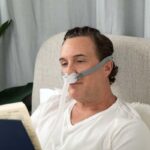 Sleep Apnea Explained: Causes, Symptoms, and Treatment OptionsIntroduction: Why Sleep Apnea Deserves Your Attention Picture this: you go to bed at a reasonable hour, expecting a full night’s rest, yet you wake up feeling drained, irritable, and foggy-headed. It’s not just “bad sleep” — it could be sleep apnea, a […]
Sleep Apnea Explained: Causes, Symptoms, and Treatment OptionsIntroduction: Why Sleep Apnea Deserves Your Attention Picture this: you go to bed at a reasonable hour, expecting a full night’s rest, yet you wake up feeling drained, irritable, and foggy-headed. It’s not just “bad sleep” — it could be sleep apnea, a […]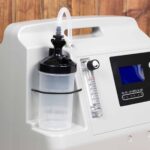 Top 5 Online Stores to Purchase a Portable Oxygen Concentrator MachinePortable oxygen concentrators (POCs) have become essential devices for individuals with respiratory conditions, providing a convenient and reliable source of oxygen. With the rise of e-commerce, purchasing a POC has never been easier. However, selecting […]
Top 5 Online Stores to Purchase a Portable Oxygen Concentrator MachinePortable oxygen concentrators (POCs) have become essential devices for individuals with respiratory conditions, providing a convenient and reliable source of oxygen. With the rise of e-commerce, purchasing a POC has never been easier. However, selecting […] Portable Oxygen Concentrator Australia: Features and BenefitsIn recent years, the demand for portable oxygen concentrators (POCs) has surged in Australia, largely due to the increasing prevalence of respiratory conditions and the need for greater mobility among patients. These devices provide a continuous supply […]
Portable Oxygen Concentrator Australia: Features and BenefitsIn recent years, the demand for portable oxygen concentrators (POCs) has surged in Australia, largely due to the increasing prevalence of respiratory conditions and the need for greater mobility among patients. These devices provide a continuous supply […]

